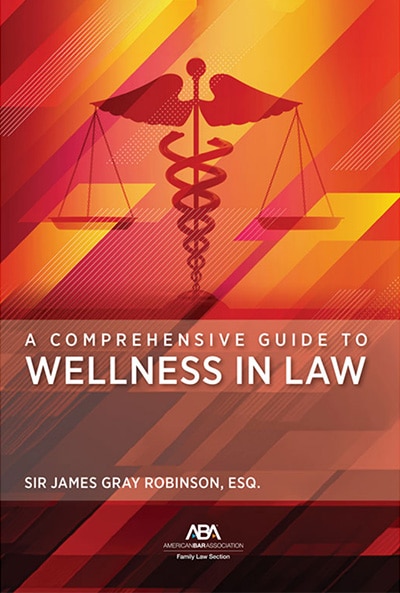As an attorney, the compassion you offer and the way you advocate for others deeply affects the quality of your life. Expressing even small acts of compassion helps boost resilience, connection, well-being, and even happiness.

Most of us were taught that happiness is something to be actively pursued — a reward that comes when you achieve enough status, earn enough money, or structure your professional life in some “ideal” or prescribed way. Yet, your quality of life is not determined by what you collect or consume but rather by what you extend and support.
I’m not standing on a platitude to tell you this. It is rooted in science and the very workings of your brain. The quality of your life is impacted deeply by the compassion you offer and the way you support and advocate for others. Acts and even thoughts of compassion cause your brain and body to shift toward greater resilience, connection, well-being and, yes, happiness.
How Compassion Becomes Your Superpower
Compassion is considered a moral virtue because we’ve deemed it to be but, more importantly, it is a biological function. Your brain is wired for social connection and every act of kindness strengthens the neural circuits responsible for emotional regulation, stress reduction and overall health. And I mean every act, even as small as letting someone merge easily in traffic or paying for the coffee of the stranger behind you at a drive-thru window.
When you practice compassion on any level, your brain releases oxytocin, often called the “bonding hormone.” This powerful hormone reduces stress, lowers your blood pressure, and enhances your ability to trust and connect with others, something we all need a lot of right now. When you hold more compassion for others, you become calmer, less reactive, and more capable of handling life’s many challenges.
When you prioritize only your own success or levels of comfort and self-protection, your stress levels tend to rise. Your brain defaults to survival mode, triggering more cortisol — the stress hormone. Chronic self-focus can lead to a heightened sense of threat, increased anxiety, and even a reduced ability to experience joy.
You might think keeping your guard up makes you stronger, but it weakens your nervous system’s ability to recover from stress. The more isolated and disconnected you are, the more likely you are to experience burnout, emotional exhaustion, and even physical and mental illness.
In contrast, compassion acts as a neurological reset. Feeling and practicing compassion shifts you from a reactive state to a responsive one. When you choose to approach someone with understanding rather than judgment, even if only in your mind, your brain strengthens its ability to regulate emotions. The simple act of acknowledging another person’s struggles, even silently, activates mirror neurons, which allow you to feel empathy and connection. In turn, this strengthens your emotional resilience. It is truly a win-win situation.
Over time, this approach rewires your brain. You become less reactive and more responsive, less anxious and more grounded. You get out of survival mode and become more open to connection, creativity and joy. The more compassion you hold, the more strength you develop — not in a way that hardens you but in a way that makes you unshakable. This strength is a superpower.
Compassion is not sacrifice. It doesn’t mean you must accept what you feel you cannot. It is a powerful bridge between you and a richer, more meaningful existence.
Practicing Compassion as an Attorney in the Real World
Don’t be surprised or ashamed if your first reaction is to resist the idea. After all, society tells you to secure your own success, protect your own comfort, and prioritize yourself above all else. (Admittedly, sometimes it feels hard to let someone cut in front of you in traffic, especially when it feels like they acted selfishly to get there.) Your pragmatism may also support a single-minded focus on the pressing demands of your day-to-day practice over the “greater good.”
It is true: You can’t spend every moment pouring into others at the expense of your own needs (nor should that be a goal). It is also true, however, that compassion is not an all-or-nothing practice. It’s not about martyrdom. It’s about a mindset shift.
Small, daily mindset shifts create long-term change.
The more compassion you have for others, the more resilient you become.
In my head, it looks like a trampoline, where the more you practice compassion, the higher you can bounce. The higher you can bounce, the more your view expands, and the better you get at jumping and reaching further.
The next time you feel irritated or triggered by a client or a loved one, pause. Instead of defaulting to frustration, ask yourself what might be happening beneath the surface. Are they overwhelmed? Are they struggling with something unseen? This doesn’t mean you excuse harmful behavior, or that you must accept what you cannot. But it does mean you approach situations with curiosity rather than immediate judgment.
Each time you do this, you strengthen the neural pathways that make compassion easier and more automatic.
The bonus is you don’t need grand gestures or sacrifices.
You just need to practice “seeing”:
- Seeing the exhaustion in the barista’s eyes and offering a genuine thank you.
- Seeing the frustration behind a sharp comment and choosing to respond with patience instead of defensiveness.
- Seeing someone stumble, whether literally or metaphorically, and extending support — not because you expect anything in return but because you know what it means to be held up when you need it most.
Learn to Practice Self-Compassion Too
Another powerful shift occurs when you practice self-compassion alongside compassion for others. Neuroscience shows that treating yourself with the same kindness you extend to others enhances your brain’s plasticity, meaning you become more adaptable, more open and more emotionally balanced.
When you beat yourself up, you activate the same stress circuits as when you perceive external threats. When you offer yourself understanding, your nervous system calms, making it far easier to extend that same grace to those around you.
I think back to the years that I spent with my compassion levels in scarcity mode. I could not see then how little I extended compassion to myself, which inevitably extended to the ways I viewed others. My career and family dynamics caused me to believe that competition and the rat race were laudable and a customary part of life. In most of my circles, authentic compassion was lacking, even in communities I found in church. It wasn’t until I began to see myself and others through the lens of compassion that my life began to change for the better. While many things contributed to my about-face in life, career and mindset, I know that leaning deeply into compassion was one of them.
As an Attorney, Compassion Is a True Superpower
Most of us believe that being kind to others is the way to move through life. Science tells us this is true.
Life’s challenges and minor annoyances don’t disappear when you practice compassion, but your capacity to navigate — even use them as launching pads — grows. When you nurture others, you simultaneously and sometimes even more impactfully nurture yourself. You find that extending and practicing compassion does not deplete your energy. It actually replenishes it.

A Comprehensive Guide to Wellness in Law
The emotional health issues lawyers face are not due to weakness or failure, says author Gray Robinson, but are often due to failed training. In this new ABA book, he offers a holistic guide to lawyer wellness, using mental, emotional, and physical approaches to managing stress and anxiety.
















